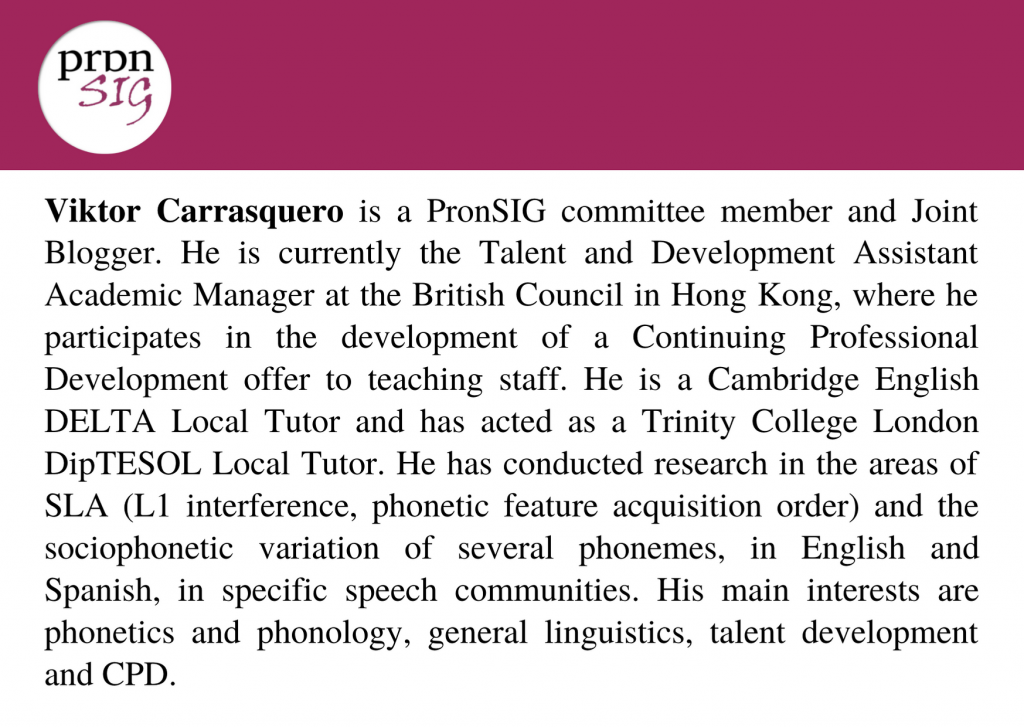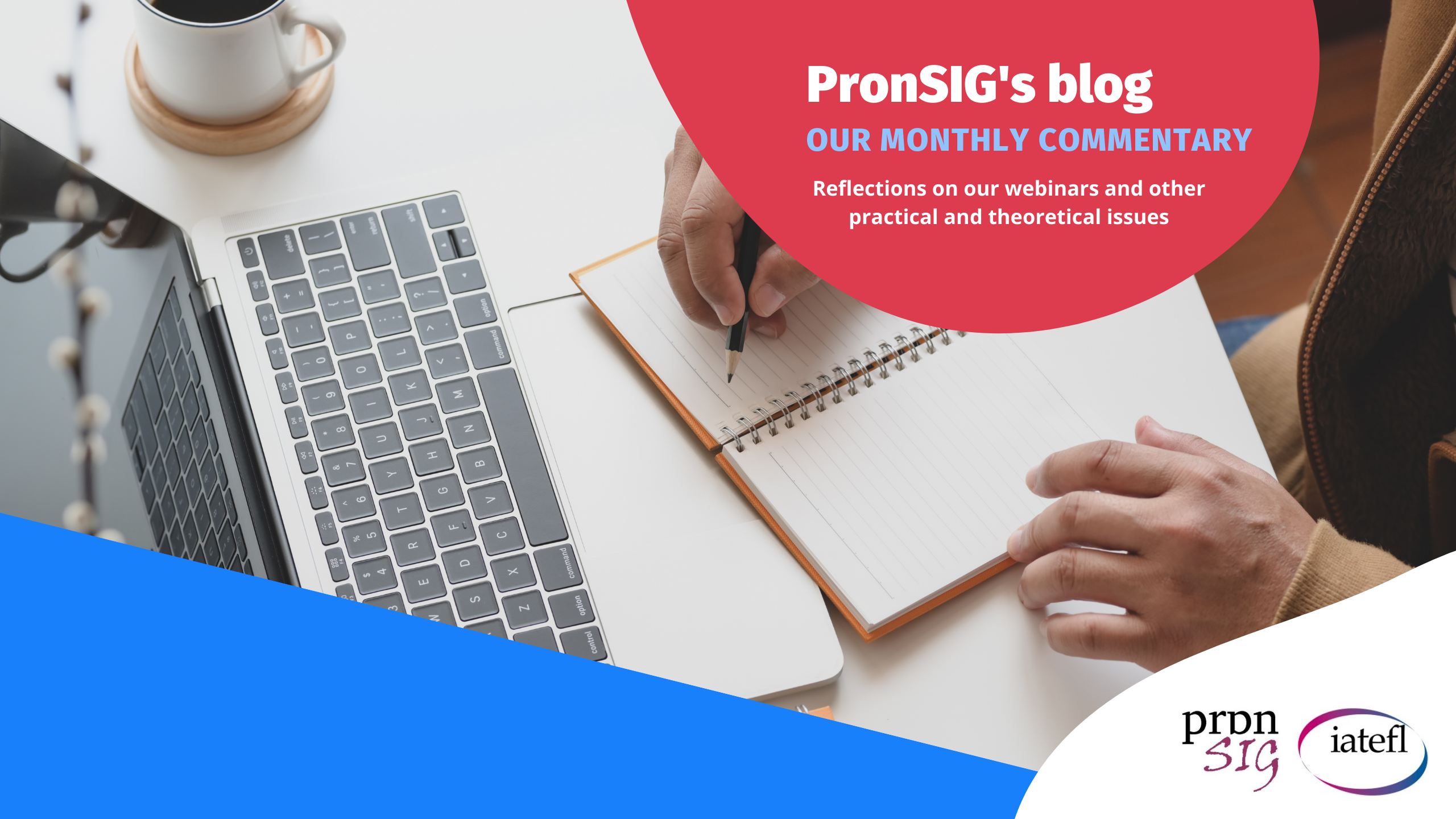Jonás Fouz-González talks about his tech research and experiences
By Viktor Carrasquero
Our Pre-Conference Event (PCE), Pron-tech collaborations: the role of technology in the pronunciation classroom, on 12 June 2021, with its workshops and roundtable, was a source of inspiration and ideas. The PCE was a very meta affair, as all the presenters were using an online video-conferencing application to talk about ways of using tech, mostly web-based, to enhance our learners’ pronunciation work. If you would like to get a glimpse of what the event was like, while getting some bonus tips, check our previous blog post, by Ana Paula Biazon Rocha, which provides insightful commentary about the PCE. In this post, I will focus on the workshop run by Jonás Fouz-González, titled Teaching pronunciation with podcasts: opportunities for perception and production practice.
The appeal of podcasts
Fouz-González gave some very persuasive reasons for using podcasts in the ELT classroom: 1) they are a virtually limitless source of language input, accessible from anywhere with an internet connection; 2) they can be used by learners to produce their own podcasts to share with their peers, teachers, or anyone else; and 3) many podcast apps and websites can be used for free. Podcasts also provide examples of authentic speech, produced by speakers with various linguistic backgrounds. Using podcasts in class can be an empowering tool, giving learners opportunities to hear, at their own leisure, language varieties they may not be normally exposed to in their classroom, while also allowing them to focus on speech features they are interested in.
A virtuous circle
Both in research and in his classroom practice, Fouz-González has got his learners through an enhanced pronunciation training procedure. One of the trialled enhancements was combining explicit instruction on target pronunciation features with perceptual training, using podcasts where such features can be found and analysed. What follows is an abridged version of the training procedure:
- Explicit information: learners get a better understanding of how pronunciation features are produced;
- Perceptual training: learners focus on the target pronunciation features, as heard in podcasts, as they listen to sounds in isolation and in context;
- Production Practice: learners produce the target features in controlled and spontaneous ways;
- Analysis and feedback: for learners to assess their peers’ recordings.
Check Fouz-González (2019) for a detailed discussion of this procedure and its methodological and practical implications.
Guiding students’ peer feedback
In the workshop, Fouz-González emphasised the importance of giving learners clear assessment criteria, so they could analyse pronunciation features produced by their peers in the recordings. By providing learners with assessment rubrics, the researcher guaranteed that students had a clear, specific idea of what they had to listen for. Given that students had to assess specific pronunciation features, instead of rating their peers’ overall speech intelligibility / comprehensibility, the task was very focused, with defined scope and goals.
A researcher with a passion for pronunciation and technology
Jonás Fouz-González is a lecturer and researcher at University of Murcia (Spain). Some of his interest areas are Computer-Assisted Pronunciation Training, L2 speech learning, and English phonetics and phonology. He is a prolific author who has had numerous articles and book chapters published in recent years. He kindly agreed to chat about his passion for pronunciation, and about his PCE workshop. In this conversation, his commitment to science and detail became even more apparent, as he talked me through the theories and various experiments that fed into the content he covered in the workshop. Check his website for more information about his publications and interests. At PronSIG, we hope we can have him back for more events in the future.
Don’t miss any of our events! Become a member of PronSIG and gain access to a wide range of resources that will expand your understanding of pronunciation and give you tools you can use in your classroom. Check our previous posts with tips and ideas for teaching pronunciation.
Reference
Fouz-González, J. (2019). Podcast-based pronunciation training: Enhancing FL learners’ perception and production of fossilised segmental features. ReCALL, 31(2), 150–169. https://doi.org/10.1017/S0958344018000174


